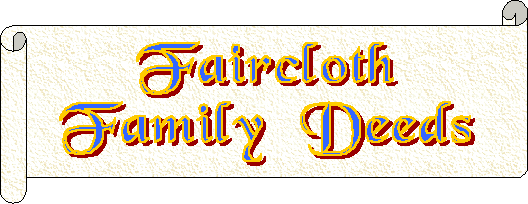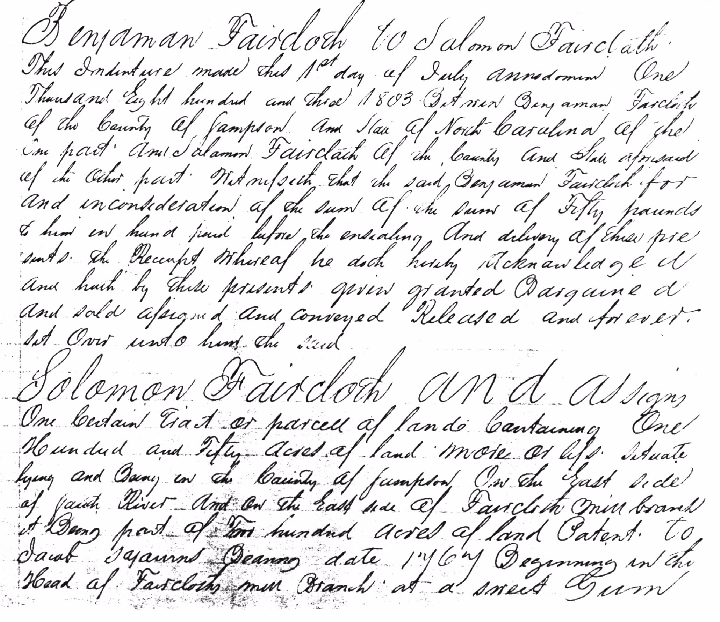

![]()
W
elcome to our History section on old deed records of the Faircloth Family. Deeds are one of the most important types of records to learn more about ancestors. During our Colonial period and in the very early history of the United States, they often took the place of wills in dividing a person's estate. Deeds not only tell us when and where an ancestor bought land but also are important in telling us about kinship between relatives.It was very common in our early history for a father or mother to give their children and other relatives land and other property during their lifetime. This was done in order to help the children get started in life with land to establish their own farm or money to help them buy one.
Other deeds often show kinship between brothers, sisters and other relatives.
If you have copies of old deeds or wills on our family, we would very much appreciate it if you would make xerox copies and send these to us to preserve in the Faircloth Family National Library.
If you came directly to this site, be sure and visit the Faircloth Family Association HOME page, where you can jump to the online Faircloth family NEWSLETTER, the family QUERIES section and the main HISTORY page. Click on "HOME" at the bottom of this page to get started.
![]()

The above is part of a deed written in 1803 in Sampson County, NC when Benjamin Faircloth Junior sold 150 acres of land to his brother, Solomon. The land was part of an original State land patent containing 200 acres. Note that the land is abuts on "Faircloth Mill branch", a creek where the family had built a grist mill. During pioneer days, if you wanted to eat bread and bisquits, you had to not only grow your own grain but mill it too or pay someone who had a grist mill to grind it for you. A grist mill was an important business in every rural area up to the 1900's, when stores in small towns began selling packaged wheat flour and corn meal.
 to Faircloth Family Association HOME page
to Faircloth Family Association HOME page
You are visitor (#) since Aug 2000